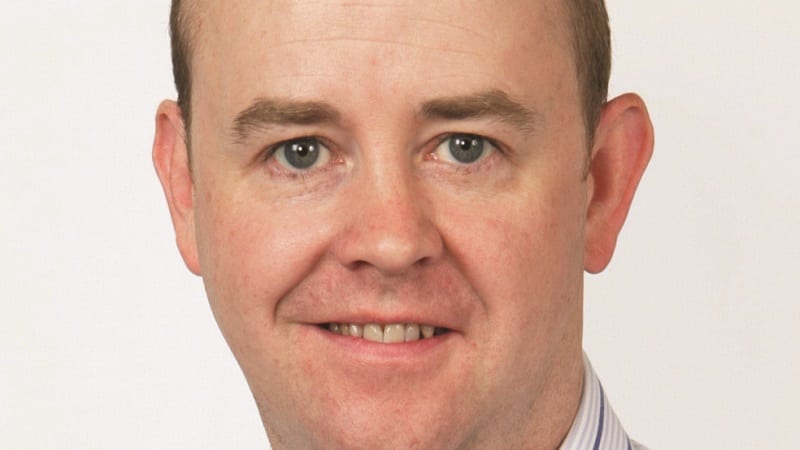The threat of inflation has become more real in the past couple of weeks as figures from the US and the UK gave investors far more to think about.
The question now is whether central banks will buckle under the pressure to raise rates sooner than they originally intended and, perhaps even more importantly, if this inflation is transitory or whether it will turn out to be more embedded in the system than it has been for many years.
A bit of gentle inflation is typically good for equities, but the US figure going through 4% did spook markets – although the S&P is still not far off its 52-week high.
I think now is the time to be a little more cautious – balance and diversification are a must. The reason for that is there is very little across any asset class which looks cheap relative to history. But in a world where cash is yielding nothing, gilts are yielding 0.5 to 1 per cent and corporate bonds are yielding 2 per cent if you’re lucky – you still need to find a way to garner returns.
With this in mind, here are four funds which are focused on protecting investor capital.
Rathbone Strategic Growth Portfolio
With a target of cash plus 3-5% pa over a minimum five-year period, the Rathbone Strategic Growth Portfolio has more than achieved its aims since launch. Manager David Coombs focuses not only on returns, but also on risk and correlation of assets. Asset classes are then divided into three distinct categories – liquidity (those that can be bought and sold easily), equity risk and diversifiers.
The equity risk bucket is the primary driver of returns. Despite being under the equities banner, this bucket also includes the likes of corporate bonds, high yield bonds, emerging debt, property Reits and investment trusts and accounts for 50-70% of the fund.
The diversification bucket offers further insurance in the portfolio by giving exposure to the likes of put options and gold, while the liquidity bucket consists exclusively of cash and A-rated government bonds – and is designed to provide some negative correlation. This bucket tends to have a higher allocation when David is expecting a downturn in markets (currently 24% of the fund*).
SVS Church House Tenax Absolute Return Strategies
This is a multi-asset fund that invests directly in assets, rather than using the fund of funds route. It invests in fixed interest, equities, property, alternatives and cash, with limits on exposure to each. It targets positive returns over rolling 12-month periods.
Managed by James Mahon and Jerry Wharton, one of the main drivers of the investment process is the attention given to interest rates, especially rate spreads. The bottom-up process will look at timing, curve positioning, duration management, capital structure and covenants. The managers then seek to gain the appropriate exposure across a broad range of asset classes. The most important factor in the process is avoiding loss, so the managers are not afraid of cash/near cash to emphasise the absolute return approach.
Ninety One Cautious Managed
This fund has been a top quartile performer since John Stopford and Jason Barbora-Sheen took over as managers a year ago**. Investing in a diverse range of equities and bonds, the fund aims to achieve returns that are equal to, or more than, the rate of inflation +4% per annum (before fees are taken) over rolling 5-year periods.
When selecting equities, the team initially filters by size, turnover and volatility. It then ranks each qualifying company by yield, sustainability and other compelling forces. The team also filters the global high yield universe of some 3,700 names, cutting the number of those eligible to 830 on size alone. These are then screened for value by sector and region. The remaining 240 are then subject to further analysis and stress testing. The resulting portfolio will typically comprise of 80 equity holdings and 80-100 fixed income issuers.
JOHCM Global Opportunities
This fund has historically been among the least volatile in the IA Global sector. Manager Ben Leyland has a strong bias towards larger and medium-sized multi-national businesses in his portfolio, which typically holds 30-40 stocks.
Capital preservation runs through the heart of the process. The team begins by screening out companies with the biggest causes of capital destruction, weak franchises, over-geared balance sheets and over-valued assets. They then focus their research on high quality, high return on capital businesses. Companies are valued on a best and worst case scenario.
Ben is also very willing to hold high levels of cash (up to 20%) and has done so on several occasions since the fund was launched. This helps reduce volatility and gives him ammunition to take advantage of opportunities created by falls in the market.
*Source: Fund factsheet, 30 April 2021
**Source: FE Fundinfo, total returns in sterling, figures from 21 May 2020 to 21 May 2021







